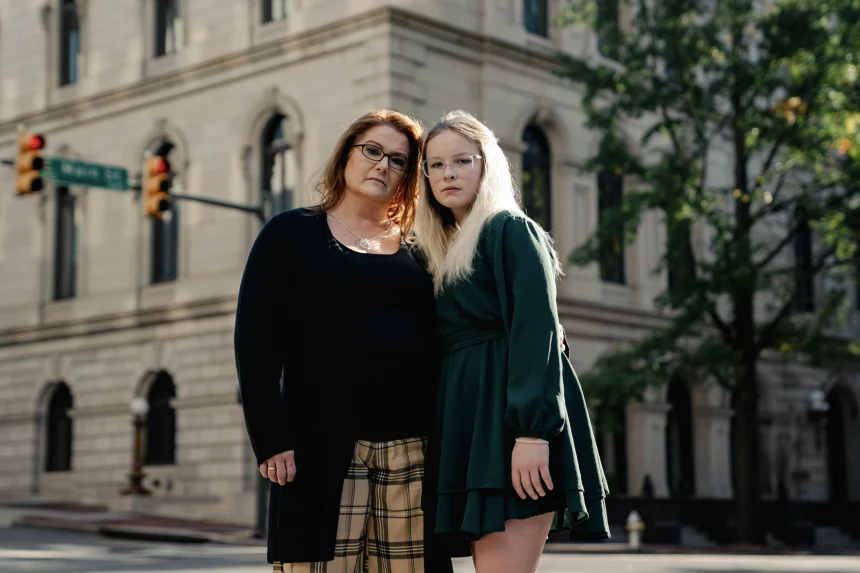Becky Pepper-Jackson, 13, is at the heart of a legal battle against a West Virginia law that prohibits transgender girls from participating in school sports teams aligned with their gender identity. Her journey through the courts has stretched over two years, with the potential to influence national policies.
In 2021, when Becky was just 11 years old, West Virginia Governor Jim Justice signed a bill banning transgender girls from participating in girls’ sports teams at middle schools, high schools, and colleges. Becky’s case landed in the 4th Circuit Court of Appeals, where the judges are now tasked with deciding the fate of this discriminatory law, which could ultimately lead to a showdown at the U.S. Supreme Court.
Despite the legal turmoil, Becky has been allowed to participate in her school’s cross country and track and field teams since the appeals court reinstated an injunction against the law earlier this year. However, West Virginia’s state government appealed this decision to the Supreme Court, which, in turn, declined to reinstate the ban during the ongoing lawsuit.
For Becky, her love for sports is a driving force behind her continued fight. She’s dedicated to excelling in every aspect of her life, whether it’s algebra, running, shot put, or discus. Running has always been a family affair for her, bonding her with her mother and brothers, even though her running routine has evolved over time.

West Virginia was among the first states to implement such restrictive measures against transgender student athletes, with little evidence to support claims of unfair advantage. Becky’s mother, Heather, emphasizes that this fight is about acceptance and the right to be a kid who enjoys sports without barriers.
The legal battle, spearheaded by the American Civil Liberties Union and Lambda Legal, argues that West Virginia’s law is discriminatory and violates federal protections against sex-based discrimination. Becky’s lawyer, Joshua Block of the ACLU, asserts that the law unfairly targets transgender students based on their gender identity rather than focusing on relevant criteria for athletic performance.
As the court deliberates, the implications of this case are far-reaching, with 23 states enacting similar restrictions in recent years. Becky’s story underscores the ongoing struggle for transgender inclusion in school sports, and regardless of the court’s decision, the fight for equal opportunities continues.
In the words of Becky herself, “I want to keep going because this is something I love to do, and I’m not just going to give it up.”

